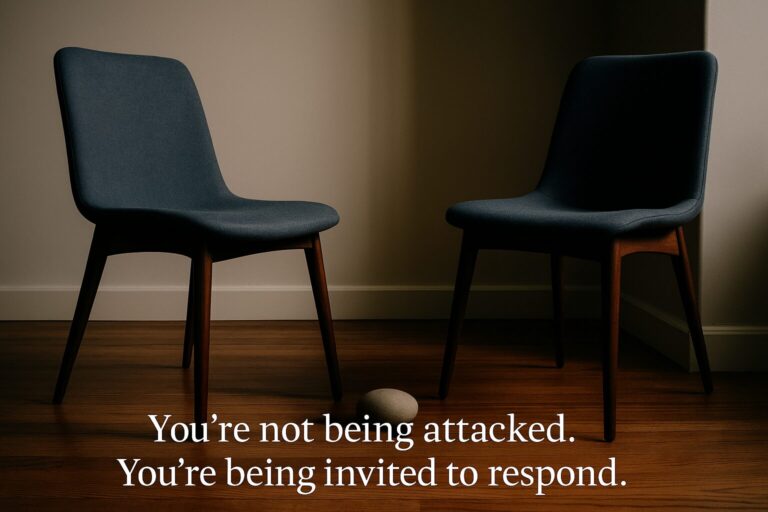For generations, masculinity was measured by distance: stoicism, strength, silence. A “good man” was one who worked hard, didn’t complain, and provided—often at the cost of emotional presence. But something is shifting. And if you’re raising kids with a man, or were raised by one, you probably feel it too.
We see it in therapy every day. Men are showing up differently—not always perfectly, but differently. They’re not just tolerating the emotional work of relationships; they’re asking for it. They’re tired of playing roles. They want the real thing.
What Makes a Man a Good Partner—And a Good Father?
Dove’s “Care Makes a Dad” campaign touched a nerve. It quietly challenged the old blueprint of fatherhood: the man who fixes the sink but not the silence at the dinner table. Instead, it asked: What if care—not control—was the foundation of fatherhood?
That same question lies at the heart of modern couples therapy.
Caring doesn’t mean being passive. It doesn’t mean men must perform femininity to be accepted. It means presence. It means attunement. It means learning to speak, not just act.
When we work with heterosexual couples in distress, the biggest relationship shift often comes when the male partner stops confusing emotional avoidance with strength.
When he learns that protection doesn’t mean shielding everyone from hard truths—but stepping toward them.
When he realizes that what his partner needed all along wasn’t a hero, but a human.
The Cultural Backlash (and Why It Matters)
Let’s not pretend this evolution is universally welcomed. We’re in a cultural tug-of-war over what it means to be a man. There are louder-than-ever voices trying to drag men back into 1950s masculinity—stoic, self-sacrificing, dominant.
But we see a quieter revolution taking root. It’s in the father braiding his daughter’s hair while helping her regulate a meltdown. In the husband sitting in couples therapy, naming the grief he’s never said aloud. In the man who finally says, “I don’t want to be my dad.”
These moments are not weakness. They are transformation. And transformation, in a man who was never allowed to be soft, is radical.
Why This Matters in Your Relationship
If you’re partnered with a man and struggling, it’s possible that his emotional withdrawal isn’t cruelty—it’s conditioning. He may have no map for the territory you’re asking him to enter.
You want more connection. More conversation. More help with the kids. More warmth. He wants to help—but his internal compass might still say, “Don’t feel. Just fix.”
That’s why real change happens in therapy—not just because of techniques, but because someone is finally modeling a new way to be a man in relationship.
We’ve seen men who were labeled as “checked out” become the emotional anchor in their marriage. Not because their partner changed. But because they did.
If You’re a Man Reading This…
You don’t need to become someone else to be loved better. But you might need to unlearn some things.
You might need to stop proving your worth with productivity and start building it with presence.
You might need to stop hiding behind logic and start trusting your emotional intelligence—which, yes, you have.
And if you’re raising children, especially sons, you have the chance to model a masculinity that includes tenderness without losing power. A father who can cry and still protect. A partner who listens, not just provides.
This Is the Work We Do
At Couples Therapy Inc., we work with couples in transition—of age, of identity, of expectation. We work with men who are ready to stop pretending, and women who are ready to stop parenting their partners. We help couples repair not just trust, but the very ideas they were raised with about love, gender, and strength.
It’s not about becoming a different person. It’s about becoming a fuller version of yourself.
That’s what care does. And care—not toughness, not silence—is what makes a dad. And a partner worth keeping.







